Alcibiades. Failed great hero of Athens and Hellas
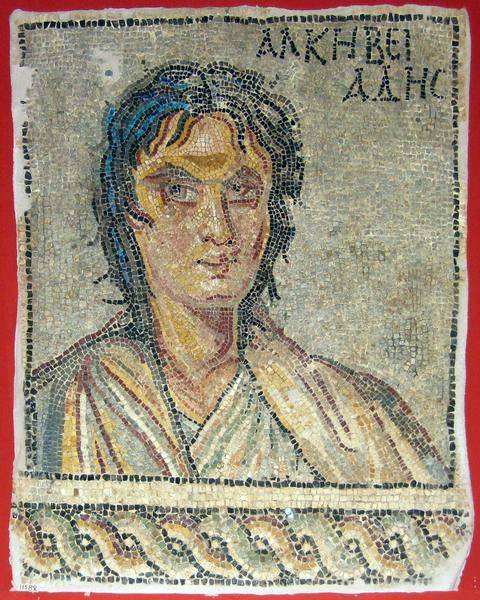
В previous article we talked about the origin and youth of Alcibiades - a pupil of Pericles and a student of Socrates, whom his contemporaries considered equally great both in virtues and in vices. Today we will continue this story and recall the military and political career of this undoubtedly outstanding person, his exploits, betrayals and tragic death after the end of the Peloponnesian War.
But first, we will have to briefly digress from the story of Alcibiades and talk a little about the Peloponnesian War, one of the main characters of which was the hero of our article.
Peloponnesian War
Speaking of this war, Thucydides wrote:
So many cities have never been taken and ravaged ... there have never been so many exiles and murders caused both by the war itself and by civil strife.
There have always been contradictions between Athens and Sparta. And during the Greco-Persian wars of 490-479. formed two unions of Greek policies. The first of them - the Delian (Marine) Union, which included the cities of Northern Greece, the islands of the Aegean Sea and the coast of Asia Minor, was headed by Athens. Sparta stood at the head of the Peloponnesian Union - a confederation of policies in southern Greece.
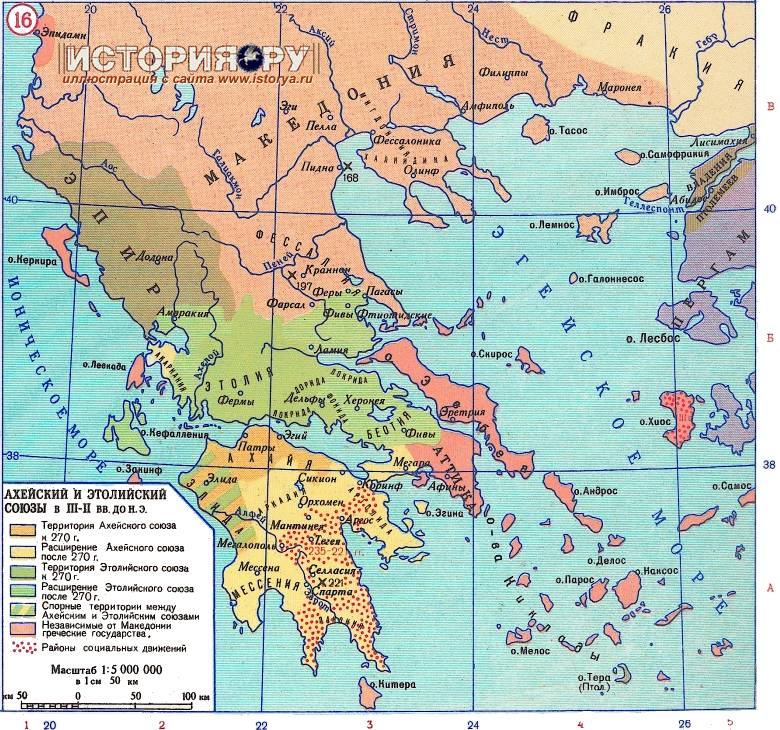
If Cimon was a friend of Sparta and even convinced the Athenians to help the Spartans against the rebellious helots during the Third Messinian War, then his opponents, on the contrary, turned out to be supporters of confrontation.
As we recall from the article Cimon, son of Miltiades, when the Athenian army came to Lacedaemon for the second time, the Spartans suspected the allies of sympathy for the helots and therefore refused to help. In Athens, this was considered an insult, the enemies of Sparta came to power there, and Cimon was expelled from Athens.
Meanwhile, the rebellious helots left their fortifications on the condition that they were allowed to leave - and were settled in Athens and Attica. Pericles, who came to power in Athens, finally took over the treasury of the Delian Union and used these funds to build the Long Walls - from Piraeus to Athens, which greatly worried Sparta and her allies. Using their dominance at sea, the Athenians began a trade war against Corinth, an ally of Sparta, and then against Megara, who dared to support the Corinthians.
It must be remembered that all other cities of the Peloponnese (except Sicyon) had practically no fleet, so that Athens dealt an economic blow to the entire Peloponnesian league. The Spartans demanded the lifting of the blockade of Corinth, the Athenians in response put forward an impossible demand to grant independence to the cities of the Periyek.
In 460 BC. e. the Small Peloponnesian War began, which consisted of periodic skirmishes in disputed territories and lasted until 445 BC. e. Finally, the parties came to a compromise that did not eliminate the contradictions and did not satisfy any of them.
In 433 BC. e. Athens imposed sanctions against Menara, which after the Little Peloponnesian War became an ally of Sparta. It was not possible to resolve this crisis through diplomacy, and in 431 BC. e. The so-called Archidamus War began - the first stage of the Peloponnesian War, it received its name in honor of the Spartan king Archidamus II. The Spartans then had to recruit even helots into their army - up to 2-3 thousand people. Some of them were trained to act as part of the phalanx and became hoplites.
It was a kind of "war of an elephant with a whale": the Spartans organized military campaigns in Attica, Athens fought off the coast of the Peloponnese. During this war, the Spartan garrison of the island of Sphacteria, besieged by the Athenians and suffering from hunger, capitulated, among others 120 Spartans were captured. It was an unheard of event, in the possibility of which neither enemies nor friends could believe. Individual warriors of Sparta have sometimes been captured before, but a whole detachment of Spartans has never surrendered to the enemy before. This capitulation made a huge impression on everyone in Greece and undermined the authority of Sparta.
In the last battle of Amphipolis (422 BC), the most consistent supporters of the war died - the Athenian Cleon and the Spartan Brasidas. Having lost the leaders of the war party, the warring parties entered into negotiations, and in 421 BC. e. concluded the so-called Treaty of Nikia (named after the Athenian politician, who became the actual successor of Pericles, who died in 429 BC). Archidamov's war only led to the mutual exhaustion of the forces and resources of both sides and ended in a draw.
The Ionian War was decisive. It began after the unsuccessful attack of Athens on Syracuse, which took place in 415 BC. e., and the Sicilian army, which defeated the Athenian expeditionary force and fleet, was led by the Spartan commander Gylippus. Two years later, in 413 BC. e. The Spartans occupied the Attic region of Dhekeleia. With the financial assistance of Persia, they built their ships, and in 405 BC. e. the great Spartan commander Lysander defeated the Athenian fleet, capturing, according to various sources, either 168 or 171 triremes out of 180.
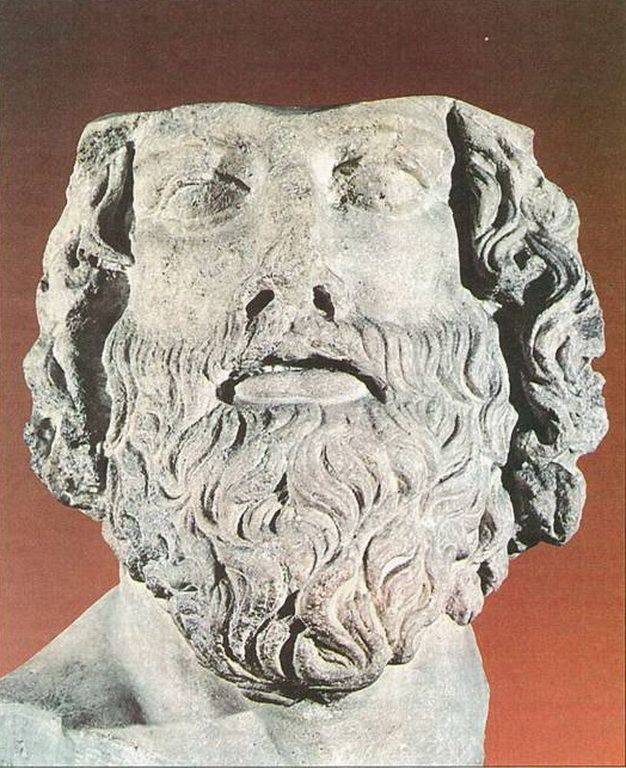
Sculpture of the head of Lysander
A year later, the Peloponnesian War ended with the defeat of Athens.
Now back to the story of Alcibiades.
The beginning of the political activity of Alcibiades
Already after the conclusion of the Nikiev peace treaty, in 420 BC. e., Alcibiades was first elected strategist and immediately began to fight with Nicias, wanting to unleash a new war with the Peloponnesian Union. On his initiative, an alliance was concluded with Argos, the old and worst enemy of Sparta, to which Elis and Mantinea joined. This led to a new aggravation of the situation, and in 418 the combined troops of Argos, Mantinea, Elis, supported by a detachment of Athenian hoplites, entered into battle with the army of the Spartan king Agis. The left flank of the Spartans was overturned by the Mantinean detachment. However, on the right flank and in the center, where Agis himself was located, the Spartans won, and the Athenian troops avoided encirclement and complete defeat only because Agis changed the direction of the blow: “ordered the entire army to go to the aid of the defeated units” (Thucydides).
Alcibiades did not accept defeat, and in 415 BC. e. he managed to persuade the citizens of Athens to organize a campaign against Syracuse. The Treaty of Nikia did not say anything about this Sicilian policy, and therefore this expedition could not be considered a violation of its obligations. Alcibiades believed that the conquest of Sicily would increase the strength of Athens and give them an edge in a new war against Sparta and her allies. Plutarch claims that:
Nicias categorically objected to this campaign, but the National Assembly did not listen to his opinion. Moreover, both Nicias and Alcibiades were appointed generals of the expeditionary army. But in Athens, all the statues of Hermes were defiled, and Alcibiades was accused of this sacrilege. He probably became a victim of his reputation, since the grounds for suspicion were the unfounded testimony of some slaves who saw drunk Alcibiades and his friends near one of the defiled statues. No one later doubted the falsehood of the accusation, since one of these slaves swore that he had seen the face of Alcibiades "by the light of the moon", while the holiday took place on a new moon. However, the trial of Alcibiades was organized, and in his absence - when the Athenian ships sailed to the shores of Sicily.
The young strategist had already achieved his first successes when he unexpectedly received an order to remove him from command and return to Athens. Claudius Elian directly states:
And Alcibiades knew perfectly well how such challenges usually end in "democratic" Athens. Therefore, he preferred to flee to Sparta, against which he had just recently planned to fight.
Plutarch reports that when asked, "Don't you believe in your homeland, Alcibiades," he replied:
The flight of Alcibiades to his short-sighted enemies in Athens only rejoiced: he was sentenced to death in absentia, his property was confiscated, and the leadership of the troops passed to Nikias, who, considered at that time the best commander of Athens, could not replace Alcibiades in this post, destroying the army, and fleet.
Upon learning of the death sentence pronounced on him by the Athenian court, Alcibiades declared that he would prove to everyone that he was still alive - and did it with his usual brilliance. He persuaded the authorities of Sparta to help the Sicilians. The Spartan Gylippus, who was sent to Syracuse with only four ships, led the army of that city. Under his leadership, the Sicilians defeated the Athenian fleet of 200 ships and the invading army, numbering up to 40 thousand people.
After that, Alcibiades advised the Spartans not to organize trips to Attica, but to occupy that very Dekeleia, located north of Athens, using it as a permanent foothold. As a result, about 20 thousand Athenian slaves went over to the side of the Spartans. Taking advantage of the situation, some policies withdrew from the Delian Union that had long weighed on them. Finally, it was Alcibiades who suggested that the Spartans build their own fleet, and turn to the Persians for money for its construction. And he also became the first commander of the Spartan fleet.
However, Alcibiades "distinguished himself" in Sparta: while King Agis II fought in Attica, he seduced his wife Timaeus, who as a result gave birth to a boy named Leotichid from him. Alcibiades later claimed that he did not love her, but simply wanted his son and an Athenian to become the king of Sparta. But Timaea, it seems, on the contrary, seriously fell in love with him and even in the family circle called her son Alcibiades (this boy never became king). When this connection ceased to be a secret for everyone, Alcibiades preferred to avoid meeting with a deceived husband and moved to Persian-controlled Asia Minor.
Following him, Spartan ambassadors came there, hoping to receive money from the Persians for the construction of new warships. Alcibiades advised Tissaphernes, who ruled Asia Minor, to refuse the Spartans, since the mutual exhaustion of both sides in endless wars is beneficial for Persia.
The Athenians were defeated and therefore in 411 BC. e. turned to Alcibiades with a request to become commander of the fleet. He fought against the Spartans for 4 years, won a number of victories on land and at sea. The scales, already leaning towards Sparta, began to oscillate again and came into balance. In 407 BC. e. Alcibiades triumphantly returned to Athens. Plutarch reports:
Alcibiades received the post of strategist-autocrator, that is, commander-in-chief of all armed forces. Many expected that Alcibiades, who was at the peak of his popularity, would declare himself the tyrant of Athens, but he did not dare to take this last step to power over his native city.
And just at that time, a new hero appeared in Lacedaemon - Lysander, one of the best generals in the whole history Sparta.
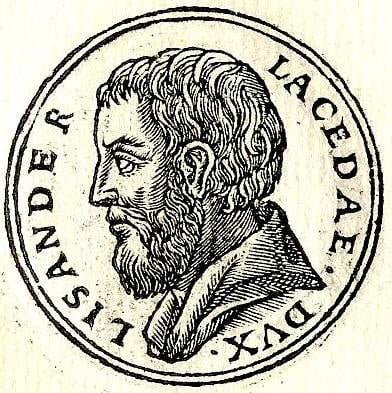
In February 406 BC. e. he inflicted a heavy defeat on the Athenian fleet at the battle of Cape Notius. Unfortunately for the Athenians, Alcibiades was absent at that moment, and Antiochus, who served as deputy helmsman of his ship, according to Diodorus Siculus, was
Antiochus voluntarily entered the battle, and inadvertently brought the flagship too close to the coast, where she was attacked and sunk by three Spartan triremes. Antiochus died, the uncontrolled Athenian fleet began to retreat, Lysander pursued him, sinking 22 ships.
Alcibiades, who was removed from command, was found guilty of the defeat. Insulted, Alcibiades went into voluntary exile, settling in a small fortress in the area of the Black Sea Straits. But he once again tried to help his city. Seeing in 405 BC. e. the Athenian fleet on the European coast of the Hellespont, he appeared to warn of the danger of the chosen position, but they did not even listen to him. And Lysander finally defeated the Athenian fleet at the battle of Aegospotami, capturing almost all the ships. The Athenian strategist Konon fled to Persia. It was no longer possible to stop Lysander, in 404 BC. e. he entered Athens and ordered the destruction of the Long Walls.
Thus ended the 27-year-old Peloponnesian War.
Alcibiades, in the company of hetaera Timandra, moved to the possession of the Persian governor of Asia Minor, Pharnabazus, where he settled in the Bithynian village of Griny. However, enemies in both Athens and Sparta still feared the return of Alcibiades. Moreover, dissatisfaction with the rule of the “30 tyrants” led by Critias was growing in Athens (about one and a half thousand people were executed in Athens in a year). Pharnabazus, not without some internal resistance, nevertheless went to meet the general wishes of the rulers of Athens and Sparta and ordered the murder of Alcibiades - in the same 404 BC. e.
According to Plutarch, the killers set fire to the house of Alcibiades, but he, wrapping his left hand in a cloak, and clutching a sword in his right, managed to get out. His reputation was such that the Persians did not dare to engage in hand-to-hand combat with him. Retreating, they threw spears at the Athenian exile.
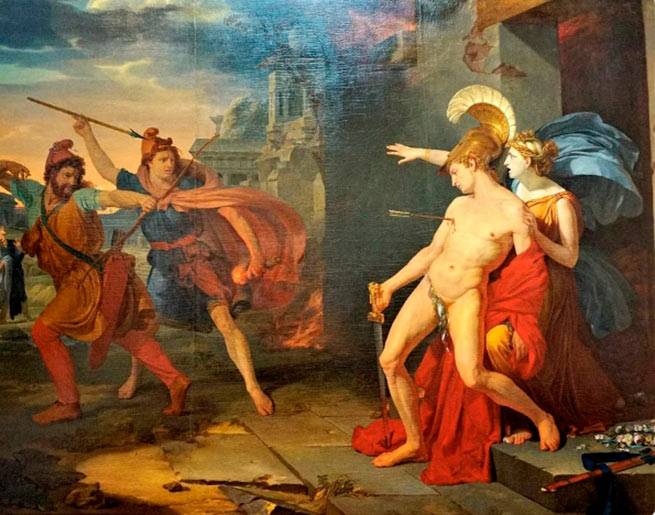
Philip Chery. Death of Alcibiades
Thus, Alcibiades was treacherously killed, who, under different conditions and circumstances, could have become one of the greatest heroes of Athens and Hellas.
The burial of Alcibiades was carried out by Timandra, who tried to bury him with honor - "as far as the funds got."
Information